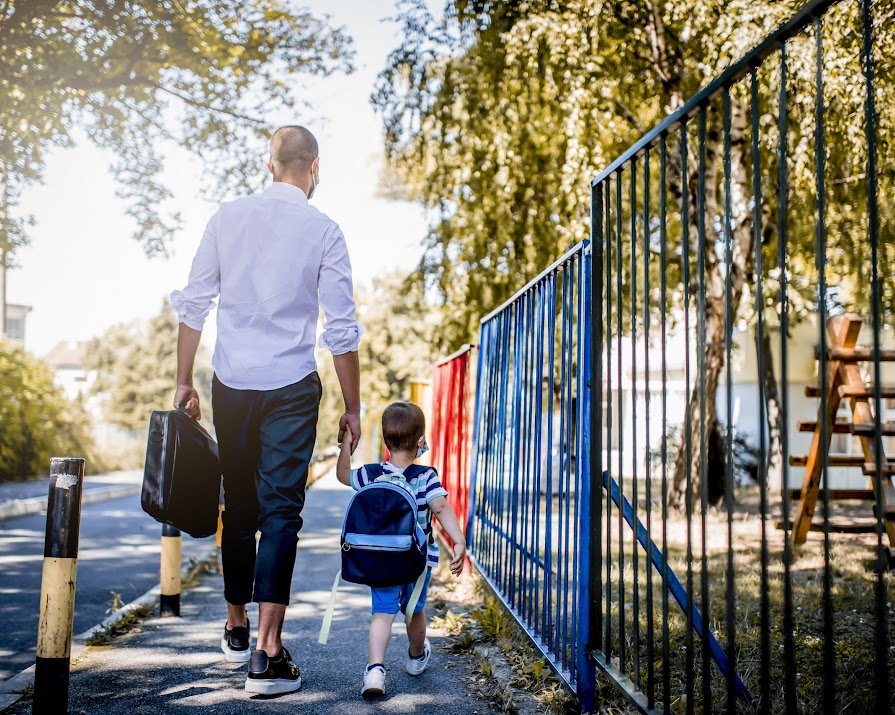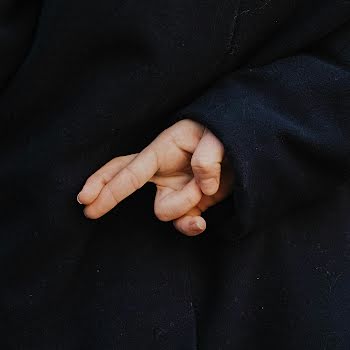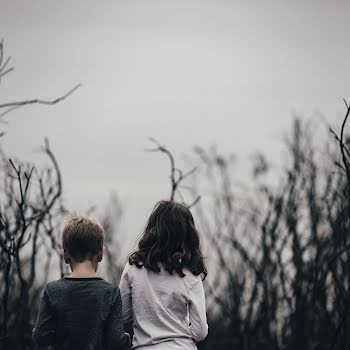
Is your child struggling with separation anxiety? This clever idea might help
By Amanda Cassidy
02nd Sep 2021
02nd Sep 2021
It is very common for children to feel anxious when they physically separate from their parents, especially after such an extended period at home with only close family. However, for some, it becomes an issue that begins to impede their independence.
After spending so many months at home with just their immediate family, our children’s worlds have grown quite small. And now with back to school jitters on top of it all, it’s natural for little ones (and not-so-little ones!) to have some anxiety about parting with you. In fact, Barnardos 2021 Back to School survey found that 53% of primary school parents and 64% of secondary school parents were worried about anxiety.
One parent wrote, “‘My child suffers terribly with anxiety and doesn’t like to leave the house for anything! It’s like ww3 to go for a walk! On returning to school last April, his anxiety was manifesting in physical”.
For many children of all ages, the removal of their security blanket (aka you!) from a situation (especially a new situation) is hard for them.
Advertisement
Tanya’s six-year-old son has a hard time going to his classmates birthday parties. She said he is insecure in new places. “I have friends whose children race off onto the bouncy castle at birthday parties, but my son lingers beside me, gripping my hand.
“If the child senses a parent’s distress when they leave, it signals to the child that something is wrong.”
He can’t bear for me to leave him at places he is unfamiliar with. I feel bad for him because he is torn between wanting to go play with his pals and feeling like he needs me there. I am very patient with him because I understand how that must feel but equally, I can’t always be the crutch he needs or he’ll never be able to overcome these difficult feelings.”
In toddlers
In younger children, this separation anxiety is the phase when they start to “make strange”. It is usually around the ages of nine and 14 months when they are clingy and wary of new people.
Creating a feeling of security for the toddler is very important. A good idea is to practice short-term separations around the house – talking to the child from the other room, reminding the child that just because they can’t see you doesn’t mean they aren’t there.
Dr Wendy Mahon is a child psychologist. She warns parents not to sneak away from the child, no matter how tempting that might be.
Advertisement
“When you’re at school and you miss me, your love travels all the way along the string until I feel it tug on my heart.”
“This approach will lead to more difficulty during the next departure. I always advise parents to maintain control over their own fears and anxieties. If the child senses a parent’s distress when they leave, it signals to the child that something is wrong.”
The invisible string
Patrice Karst is a mother of one, author and public speaker. Born in London, Karst now lives in Southern California. She wrote the best-selling book called, The Invisible String, which has helped thousands of children come to terms with being apart from their parents in a safe and secure way.
The idea is that it aims to ease separation anxiety, loneliness and loss while exploring the intangible yet unbreakable bonds between us all.
Dana Wyss PhD is a family counsellor. She believes the idea of highlighting the invisible bonds that can’t be removed brings children a great sense of understanding that during uncertain times, though we may be separated, love is the unending connection that binds us.
“Connection might be the most important need for all humans. The idea behind The Invisible String helps us to remember to teach children that we don’t have to search for connection because it already exists within us.”
Advertisement
The book is a simple children’s story about twins who are afraid to sleep in their own beds at night. Their mum tells them about the invisible string. “I don’t see a string” says the little boy. “You don’t need to see it,” explains their mother. “People who love each other are always connected by a very special strong made of love”.
Anywhere, everywhere
“But if you can’t see it, how do you know it is there?” asks the little girl. “Even though you can’t see it with your eyes, you can feel it with your heart and know you are always connected to everyone you love,” explains mum. “When you’re at school and you miss me, your love travels all the way along the String until I feel it tug on my heart.”
“Love is stronger than anger and as long as love is in your heart, the string will always be there.”
“And when you tug it right back, we feel it in our hearts” points out the boy. “The string reaches anywhere and everywhere,” says mum. “Even up to Uncle Brian in heaven?” asks her son. “Yes, even there.”
“Does the string go away when you are angry at us?” ask the twins. “Never,” says mum. “Love is stronger than anger and as long as love is in your heart, the string will always be there.”
I’ve spoken to my own children about the love in our hearts that means they should never feel alone, but I found, like the countless other parents around the world, that the book has created something tangible from something intangible. My four-year-old daughter asked me to tug on her invisible string and she told me that she felt it. She felt as if she could connect to something when she felt like she needed me or her family. It seemed to bring her great comfort.
Advertisement
Separation anxiety disorder
A fear like this in children over the age of six which lasts longer than four weeks and which is excessive can be a sign of a more serious separation anxiety disorder. This condition can also lead to very physical conditions like headaches or stomach aches such is the distress to the child of being separated from someone they are strongly attached to.
“To resolve these feelings, a child must develop an adequate sense of safety.”
It can lead to bed-wetting, pains in the tummy on school days, fear of being alone and an unrealistic fear that something bad will happen if the person they are attached to leaves them. Some of the effective treatments may include psychotherapy, family therapy, CBT and family education.
To resolve these feelings, a child must develop an adequate sense of safety, trust in parent’s return and trust in people other than their parents which of course, takes a great deal of time, understanding and patience.
The Invisible String is one simple idea that may help ease some of the fears children have over parental separation, especially when it comes to the start of school this week. It may even offer them a little more confidence to face their little selves into the big world ahead of them.
The Invisible String is by Patrice Karst, illustrated by Joanne Lew-Vriethoff
Advertisement























